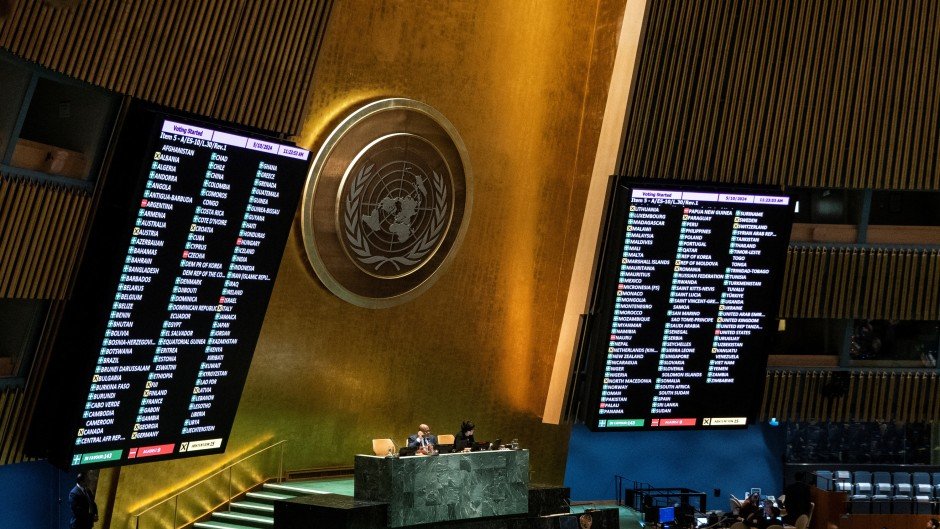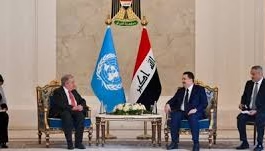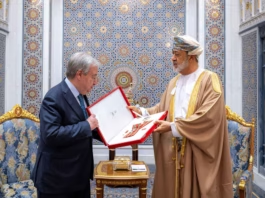The Global Stage: UN General Assembly’s Role
The United Nations General Assembly (UNGA) serves as a pivotal platform for global dialogue, decision-making, and collective action among member states. This institution brings together ministers, delegates, and representatives from diverse countries, all contributing to shaping international policies and addressing pressing global challenges. The UNGA’s significance is particularly pronounced when dealing with issues of global concern, such as the situation in Palestine, where the call for diplomacy and urgent action resonates deeply.
During each annual session, the UN General Assembly not only facilitates high-level conferences but also sets the agenda for addressing critical international affairs. The assembly creates an arena where member states can articulate their positions, advocate for specific resolutions, and collaborate on initiatives aimed at promoting peace, security, and development worldwide. It is a unique space that balances formal diplomacy with the urgency required to tackle pressing issues, such as the ongoing conflict in Palestine that demands immediate international attention and accountability.
The discussions held at the UNGA are characterized by a rich tapestry of perspectives, reflecting the diverse backgrounds and experiences of participating nations. This inclusive atmosphere fosters a sense of camaraderie among member states while also acknowledging the complex realities that underpin global conflicts. The assembly provides a forum for representatives to present their nations’ viewpoints, emphasizing the importance of multilateral cooperation in seeking sustainable solutions to long-standing disputes, including the Israeli-Palestinian conflict.
As the UN General Assembly convenes each year, it continues to underscore the necessity for constructive dialogue and collaborative efforts to drive meaningful change. The dual role of formal diplomacy and the urgency to address issues like the situation in Palestine exemplifies the assembly’s vital position in the international landscape, reinforcing its commitment to fostering hope and responsibility among the global community.
The Weight of Words: Speeches that Matter
During the sessions of the United Nations General Assembly, the potency of speeches made by various world leaders reverberated beyond formalities, resonating deeply with global concerns regarding the ongoing crisis in Palestine. Each address became a platform where leaders transcended routine diplomatic protocols, focusing instead on the pressing realities faced by the Palestinian people. The language employed in these speeches was not merely rhetorical; it was imbued with a sense of urgency and purpose that demanded accountability and actionable responses.
Speeches delivered at the General Assembly often encapsulated the emotional weight felt by those affected by the conflict. Leaders articulated the profound impact of inaction on countless lives, creating a narrative that encouraged a reevaluation of global attitudes toward the situation in Palestine. For instance, when addressing the assembly, leaders used vivid imagery and personal anecdotes that brought to light the human suffering experienced, transforming abstract concerns into relatable realities. This approach served to emphasize the moral imperative of providing assistance and support to those in need.
The focus on accountability was reiterated throughout the speeches, reflecting a collective call for concrete measures to address the enduring Israeli-Palestinian conflict. As representatives from numerous nations voiced their calls for justice and peace, the atmosphere in the assembly hall shifted, showcasing a shared commitment to fostering dialogue over hostility. In many instances, the emotional gravitas of these speeches sparked debates about long-held policies, compelling listeners to respond not only with empathy but also with a newfound sense of urgency to effect change.
This dynamic illustrates the crucial role that speechmaking plays in international discourse. Words wield significant power in shaping public perception and motivating action, especially when discussing critical issues like the Palestinian crisis. The dialogues initiated during these sessions could very well pave the way for future initiatives aimed at addressing the fundamental human rights concerns raised during the General Assembly.
Calls for Change: The Path to Peace and Dignity
During the recent UN General Assembly, a strong resonance of appeals for change echoed throughout the assembly, particularly concerning the future of the Palestinian people. Notable leaders and representatives passionately articulated a vision rooted in peace, dignity, and security, emphasizing the urgent need for a sustainable and just resolution to the longstanding conflict.
One of the central themes of the discussions highlighted the importance of respect for human rights and international law. Many speakers underscored that the path to peace must begin with an unequivocal commitment to uphold the dignity of all individuals involved in the conflict. By fostering a climate of mutual respect and understanding, these leaders expressed optimism that a more harmonious coexistence could be established.
Additionally, several proposals emerged in the assembly aimed at revitalizing dialogue between the conflicting parties. Initiatives focused on encouraging grassroots participation from both Palestinians and Israelis, allowing them to articulate their aspirations directly. Such engagement was deemed essential for building trust and fostering a shared commitment to peace.
Moreover, numerous advocates called for enhanced international support, advocating that a robust and sustained partnership with global actors could significantly contribute to achieving lasting peace. The calls emphasized that the international community should not only mediate discussions but also support initiatives that empower Palestinian society, ensuring they have the resources necessary for development and stability.
In this context, the assembly became a platform for collective vision-sharing, featuring diverse perspectives on what a peaceful resolution could entail. The unification of voices from various stakeholders reinforced the notion that addressing grievances and taking collective action toward economic and social development are paramount to achieving peace and dignity for the Palestinian people.
A World Awaiting Action: The Assembly’s Call to the Global Community
The recent session of the United Nations General Assembly has cast a spotlight on the pressing situation in Palestine, captivating the attention of the international community. The delegates and decision-makers who convened possess the unique ability to catalyze social, economic, and political change. As discussions unfolded, there was a palpable sense of hope and urgency emanating from the assembly, underlining that the time for action is now. The world is not only watching but is also waiting with bated breath for tangible outcomes that stem from these high-level deliberations.
Within the walls of the UN, rhetoric and proposals fill the air, yet it is the expectation for concrete actions that drives global citizens to look forward with anticipation. The assembly served as a platform for voices advocating for peace, resilience, and justice. These discussions provide a critical foundation upon which effective initiatives can be built. The global community is eager to see how the ambitious plans presented during the assembly will translate into real-world solutions for the ongoing challenges faced by the people of Palestine.
In the context of international relations, the assembly’s call for decisive action resonates deeply, pressing leaders to move beyond verbal commitment and engage in actionable measures. This environment of collective anticipation acts as both a challenge and an opportunity. The delegates are urged to recognize their pivotal role in shaping the future response to the humanitarian crisis at hand. The discussions undertaken during the assembly symbolize unity and shared responsibility, which must evolve into responsibility that inspires transformative results. Hope thrives on the belief that the assembly’s outcomes will lay the groundwork for a renewed commitment to peace and justice, a belief shared by many across the globe.




